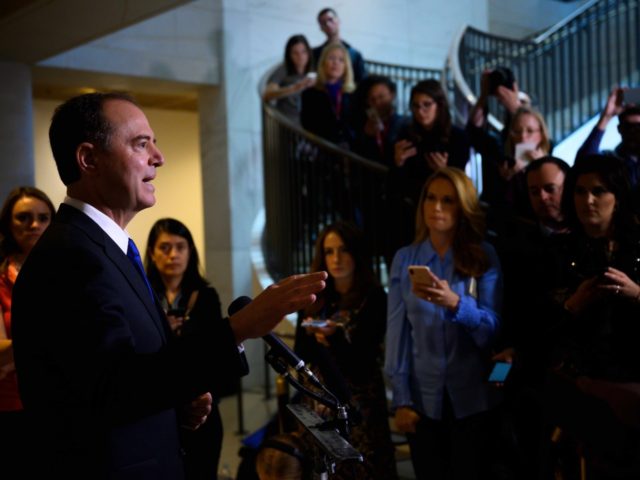Public mistrust of the media had increased America’s vulnerability to the coronavirus outbreak, argued Breitbart News Senior Editor-at-Large Joel Pollak in a group discussion on the latest episode of Politicon’s How the Heck Are We Gonna Get Along podcast.
Host Clay Aiken asked, “Should we trust the media on COVID-19? Are we in a place where we are confident … that the media is presenting this in the most straightforward and honest way?”
Pollak replied, “I think when we look back at this time, we’re going to see that the media created a vulnerability in our society to precisely this kind of threat.”
As an example, Pollak offered the media’s obsession with “Russia collusion.”
“You have a dominant story that’s been out there for three [or] four years that the president colluded with Russia to steal the election — more or less, some variation on that — and that turned out to be substantially untrue.”
Pollak continued, “You can take one side or the other of the impeachment argument — I’m not here to relitigate that — but I’m just saying that for many Americans who simply made a choice on November 8th, 2016, they’ve watched their choice being described as some sort of foreign conspiracy, and that has contributed to a level of mistrust of the media that I think made people distrustful of [other] information they were receiving.”
Congress’s focus on the impeachment of Trump across January and February came at the expense of political efforts to respond to the coronavirus outbreak during the viral spread’s early stages, Pollak noted.
“If all of us could have January and February back, I think we would,” said Pollak. “If you think back to that time, at the time when our government could have been taking more drastic action, not only were politicians focused on impeachment primarily, but our media were simply looking in a different direction.”
Pollak went on, “That’s not a Fox [News] problem, and it’s not even an MSNBC problem. We have a problem where we have become so heedless of what the purpose of media, at least in political coverage, ought to be that we actually made ourselves vulnerable to a threat that requires trust.”
Conservative audiences are suspicious of many news media narratives, explained Pollak.
“The suspicion among many in the conservative audience was that this was being done to bring down the president because it was almost made-to-order for an election year,” determined Pollak. “Now, that is not true, but that’s how people felt.”
Adam Carolla elaborated on Pollak’s comments on conservative audiences.
“When you’re of a more conservative persuasion you voted for Trump, you feel like the news media was taking him down — or attempting to take him down — over the last three years,” said Carolla, “and when this thing [coronavirus] comes around, everyone who watches Fox goes, ‘Oh here we go again. Here’s the next thing.'”
Carolla concluded, “So I think the news media, in a way, cried wolf a little too often, and got people thinking this is the next wolf — and it turned out this was actually a wolf.”
Follow Robert Kraychik on Twitter.

COMMENTS
Please let us know if you're having issues with commenting.